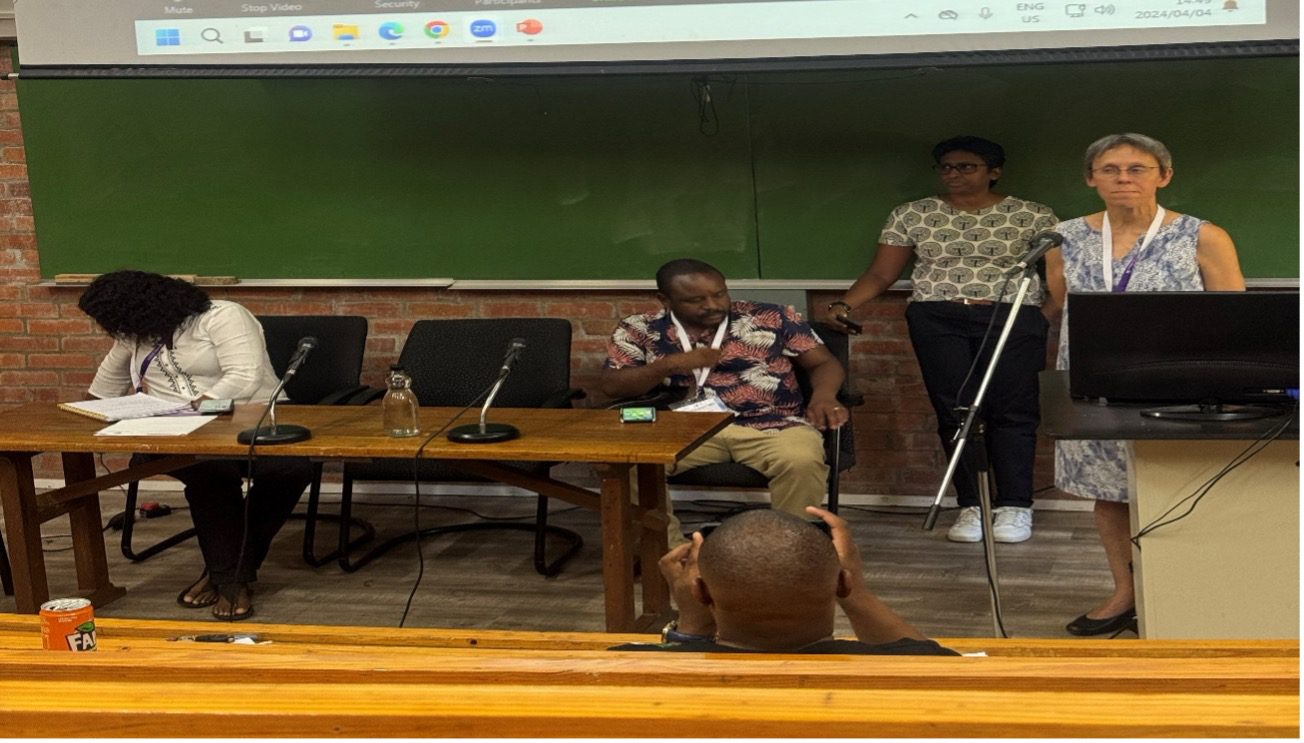By Lehlogonolo Masuku
“We must protect this profession, even if it means renaming it to something else; we cannot fold our hands and allow it to collapse,” said Dr Sfiso Mnisi of the School of Communication at the University of Johannesburg.
A symposium hosted by the School of Journalism and Media Studies (JMS) at Rhodes University on 4-6 April 2024 under the theme, “Seed of change: Cultivating the future of Journalism in Africa”. The journalism community, civil society, and academia converged in Makhanda to ignite continuous conversation surrounding the journalism profession, particularly in this ever-changing technological landscape in which it is located. Therefore, a collective commitment and effort to address challenges in the current digital era attracted the attention of the delegates, as well as opportunities that may be explored moving forward.
As the proceedings continued, presenters submitted different constructive views according to their choice of topics. Undeniably, the profession needs to be re-conceptualised to maintain economic and social relevance. In journalism education, the curriculum managers submitted that indigenous languages should form part of the curriculum, given the linguistic landscape of our country.
Prof Abiodun Salawu, director of Indigenous Language Media in Africa Research Entity (ILMA) attached to North-West University, said, “Rhodes University should consider including IsiXhosa on the journalism curriculum, considering the size of the journalism department.”
The attendees ignited the discussion by submitting that language issues have always been marginalised because English has always been dominant, and it has implications for indigenous-speaking people who have not been privileged enough to acquire an education. Therefore, they remain vulnerable to exclusion from certain conversations, thus limiting them from participating as active citizens in their economy.
Another sphere of concern that received considerable attention was Big Tech; the problem is regulation. This emanates from the character of their capabilities of transcending borders; this is the same when it comes to data sharing. Media consumers use these platforms, where amateurish journalism is being practised. The results are a proliferation of fake news sabotaging the legitimacy of objective journalism.
The debate ignited when Prof Nyasha Mboti, founder and director of Apartheid Studies at the University of Free State, submitted contrasting views, stating that life will continue without difficulty even if the profession dies. He submits that there are basic needs, such as utilities, that people may not live without, and journalism is not one of those. Before he could down the mic, commentators raised strong assertions referencing our democracy as one sphere of journalism that has positively influenced and brought socio-political change.
Scholars concluded that the profession should be improved to encourage newcomers to choose it as one sustainable profession.



